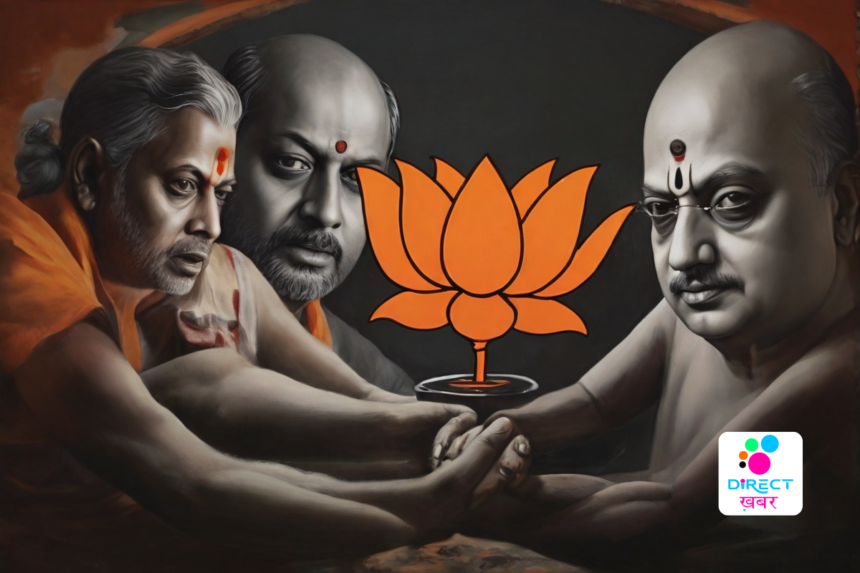Gourav Vallabh, New BJP Member, Mocks Congress: ‘I Pray to Lord Shri Ram…
Gourav Vallabh’s recent decision to leave the Congress party and join the Bharatiya Janata Party (BJP) has sparked significant attention and debate within political circles across India. His departure from the Congress, a party he had long been associated with and served as a spokesperson for, marks a significant shift in his political allegiance and raises questions about the dynamics within both parties. In this extended analysis, we’ll delve deeper into the reasons behind Vallabh’s decision, the implications of his move, and the broader political context in which it occurred.

Vallabh’s decision to resign from the Congress and join the BJP came as a surprise to many, given his longstanding association with the former party. As a prominent spokesperson for the Congress, Vallabh had been known for his articulate defenses of the party’s policies and positions on various issues. However, in recent times, he had expressed growing disillusionment with the direction of the Congress and its stance on certain key issues, particularly those related to religion and economic policy.
One of the central reasons cited by Vallabh for his decision to leave the Congress was his discomfort with the party’s stance on Sanatan Dharma, or Hinduism, and its treatment of religious issues. In his statement announcing his resignation, Vallabh lamented the Congress’ perceived hostility towards Sanatan Dharma and its failure to adequately address concerns raised by religious communities. He expressed his frustration with the party’s alleged neglect of Hindu sentiments and its reluctance to support initiatives such as the construction of the Ram temple in Ayodhya.
In his remarks at the joining ceremony, Vallabh emphasized his commitment to the BJP’s vision of a “Viksit Bharat,” or developed India, and his belief in the party’s ability to deliver on its promises of economic growth and prosperity. He expressed his admiration for Prime Minister Modi and his leadership style, praising the Prime Minister’s initiatives aimed at transforming India’s economy and infrastructure. Vallabh’s endorsement of the BJP’s agenda was seen as a significant boost for the party and a validation of its policies and priorities.

However, Vallabh’s defection was not without controversy, and it drew criticism from his former colleagues in the Congress party. Some accused him of opportunism and questioned the sincerity of his motivations for leaving the party. Others viewed his decision as a betrayal of the Congress and its principles, particularly his outspoken advocacy for social justice and secularism.
Despite the criticism, Vallabh remained steadfast in his decision to join the BJP and defended his actions as being in the best interests of the country. He argued that the BJP offered a more conducive environment for advancing his policy objectives and that his decision was driven by a desire to contribute to the nation’s development. Vallabh’s willingness to break ranks with his former party and embrace a new political identity underscored the fluidity of India’s political landscape and the shifting alliances and loyalties that characterize it.
For the BJP, Vallabh’s entry into the party fold strengthens its position and reinforces its narrative of being the preferred choice for voters seeking stability and progress.

Gourav Vallabh’s decision to leave the Congress and join the BJP reflects broader trends within Indian politics and underscores the evolving dynamics of party politics in the country. His defection highlights the challenges facing the Congress and the BJP as they seek to navigate a rapidly changing political landscape and appeal to a diverse electorate. As India prepares for the next phase of its political journey, Vallabh’s move serves as a reminder of the complexities and uncertainties that lie ahead.






